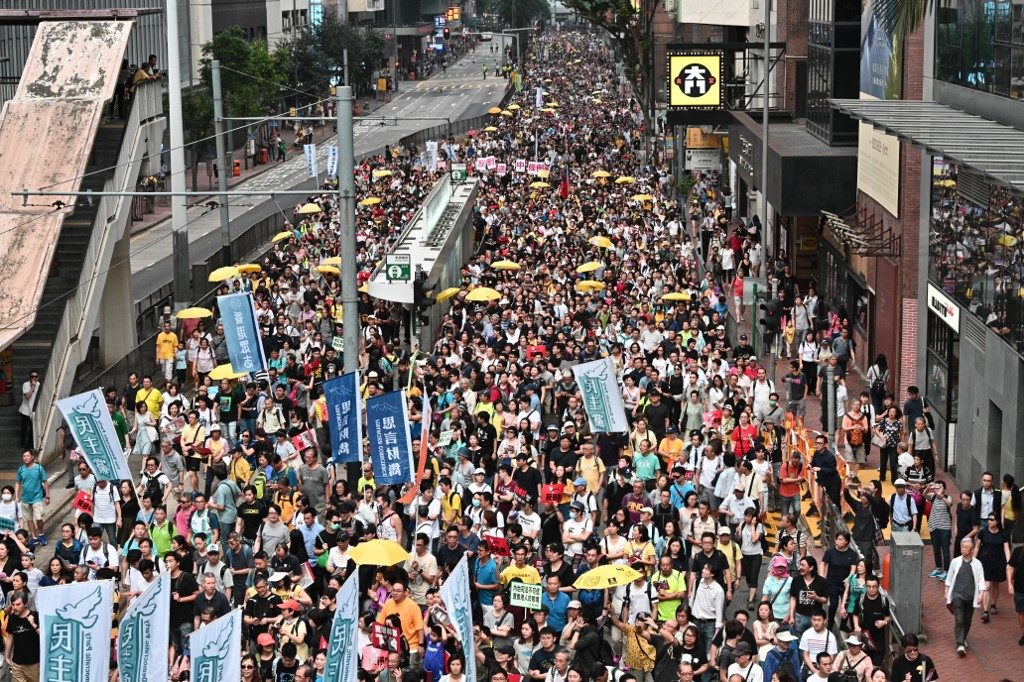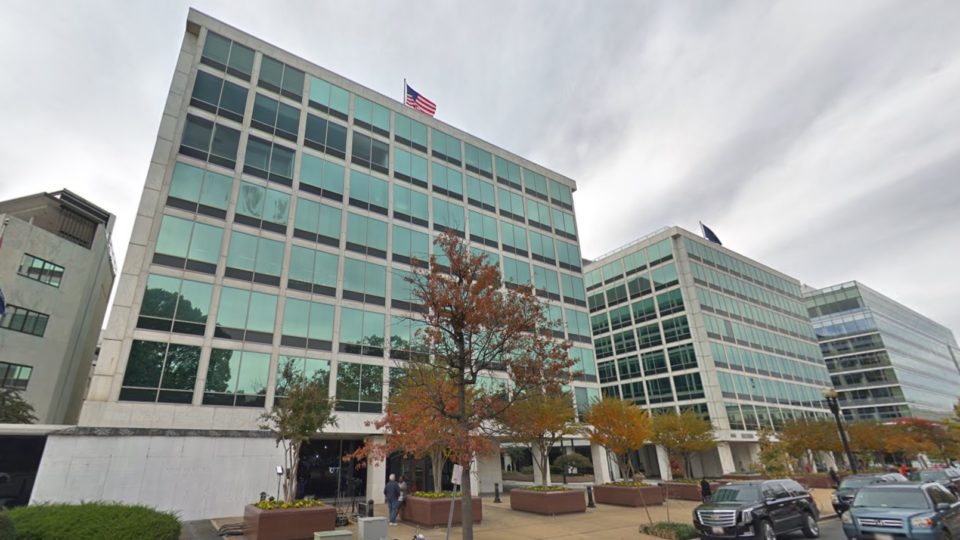A US congressional commission has warned that controversial proposed changes to Hong Kong’s extradition law could put the city at greater risk of “political coercion” by the mainland, and “create serious risks for U.S. national security and economic interests in the territory.”
The US-China Commission’s starkly worded report noted that the proposed changes — which would allow, for the first time, extraditions to mainland China and Taiwan — may not only put Americans living and working in Hong Kong at risk of wrongful extradition, it could also violate provisions US-Hong Kong Policy Act and force the US to reconsider its recommendation that businesses continue to operate in the SAR.
“If the bill passes [the Legislative Council], which is likely given the pro-Beijing majority, it would remove legal protections in Hong Kong that preserve its well regarded rule of law and reputation as a global financial hub,” the authors note.
“Although the Hong Kong authorities have publicly stated their support for existing extradition treaties, including arrangements with the United States, the new law may be used to override those protections.”
Amid the concerns over the threat to the city’s autonomy posed by the law, the report pointedly notes that the president can suspend any part of the US-Hong Kong Policy Act if it is determined that “Hong Kong is not sufficiently autonomous to justify treatment.”

The report comes on the heels of a flurry of developments concerning the law, and with widespread opposition to the changes reaching a fever pitch, the city’s pro-Beijing leadership has done next to nothing to assuage fears that the law will be misused to further erode Hong Kong’s freedoms.
The bitter stand-off between the pro-democracy and pro-Beijing camps in the LegCo is such that two opposing lawmakers are currently claiming to be the legitimate head of the committee tasked with examining the law, with both scheduling conflicting hearings later this week.
Meanwhile, earlier this week, a legal advisor to the LegCo issued an analysis questioning the rationale behind the law, the South China Morning Post reports. Among other things, he asked why mainland China couldn’t be excluded from the amendments in favor of a separate extradition agreement, why the law’s existing provisions for one-off cooperation agreements were suddenly deemed “impracticable” now, and whether additional human rights safeguards could be added.
While protocol dictates that the Security Bureau now respond to the legal division’s questions, the Bureau’s head, John Lee Ka-chiu, last week declined to meet with a local journalists’ organization that had sought to discuss concerns over the law.
The Hong Kong Journalists Association laid out some of its concerns in a statement last month opposing the legal changes.
“The amendment will make it possible for mainland authorities to demand the surrender of journalists in Hong Kong, citing all kinds of unfounded charges,” the statement said. “It is a sword hanging the head of journalists which will muzzle both journalists and whistleblowers, dealing a further blow to the already limited freedom of speech that Hong Kong still enjoys.”
On Friday, the association expressed “regret” that Lee would not meet to discuss the legislation in person, despite having done so with representatives of the business community — which has also come out against the bill.
“We understand Mr Lee has a busy schedule and is unable to meet with journalist unions and media organsiations,” the HKJA said in a statement. “However, if the whole Security Bureau could not even send a representative to meet with journalist unions, one cannot help feeling that the Bureau disregards the concerns and requests of the media profession.”
The Security Bureau also rejected a public information request by the SCMP to review the thousands of written opinions solicited by the bureau from the public in lieu of a formal consultation process.
The bureau has opaquely claimed that two-thirds of the responses were in favor of the bill, but in a break from similar requests for public opinions in the past, has refused to release the actual feedback, even after removing the identifying details of those who submitted it.
With tens of thousands of people taking part in recent demonstrations against the law, Chief Executive Carrie Lam took pains yesterday to assure the public that its concerns over the controversial legislation will be heard — not that they’ll change anything.
Speaking to reporters, Lam said that a press conference with Security Secretary Lee and Justice Secretary Teresa Cheng later that day would make for “a more holistic discussion in society” of the merits of the bill, the SCMP reports.
Tellingly, however, she immediately added: “It does not mean changes will be made.”
Indeed, speaking to the press last night, neither Cheng nor Lee alluded to the possibility of changes to the amendments.
Cheng, for her part, ruled out alternative proposals, including giving local courts authority to try Hongkongers for crimes committed overseas, as unfeasible in a statement so circular and dense with legalese that it was borderline incomprehensible.

Lee, meanwhile, only reiterated that the changes were needed to address the case of a Hongkonger wanted in Taiwan for murdering his girlfriend there — the case that gave rise to the entire notion of amending the extradition laws.
(Taiwan, for the record, is also against the proposed changes.)
The suspect in that case was sentenced late last month to more than two years in prison, though with good behavior and time already served, he may be out by October. The government, meanwhile, continues to insist that the bill’s passage is “urgent,” and must be completed before the current LegCo session ends in July.




